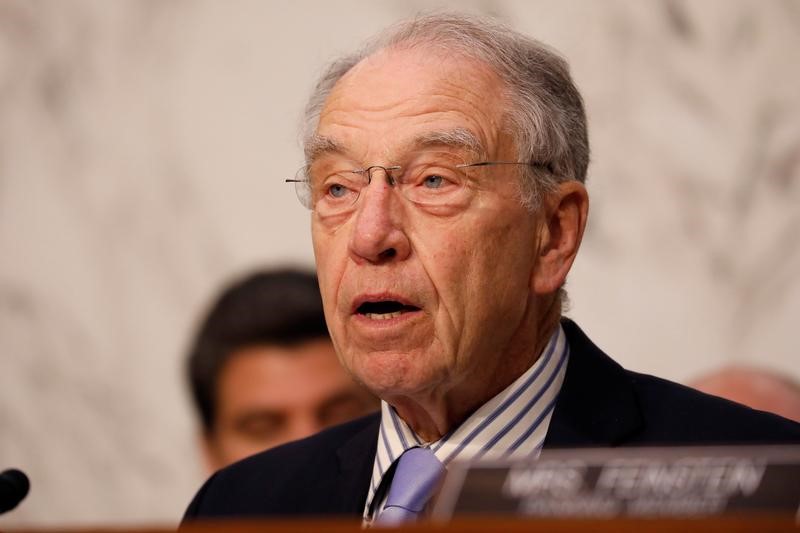By Richard Cowan
WASHINGTON (Reuters) - The head of the U.S. Senate committee that handles Supreme Court nominees said on Friday he no longer expected an imminent court vacancy, bolstering assumptions that Justice Anthony Kennedy would not retire this year.
Republican Senator Chuck Grassley, chairman of the Judiciary Committee, said expectations earlier this year of a vacancy on the nine-member bench had evaporated.
"Evidently that's not going to happen," Grassley said in a telephone interview from his home state of Iowa during the Senate's summer break. "I don't have any expectation we will have a vacancy as I thought there would be" earlier this year.
There had been speculation in the spring that Kennedy, a conservative justice who turned 81 last month and has served on the court since 1988, was considering retirement. Kennedy is the regular swing vote on the high court, sometimes siding with the four liberal justices in major rulings.
A court vacancy would give Republican President Donald Trump a chance to appoint a second conservative justice to the high court since taking office in January.
But court watchers expect Trump to nominate a jurist who is more likely to consistently decide cases with the conservative wing of the court, unlike Kennedy.
In the interview on Friday, Grassley noted that every year there is speculation that a justice might retire during the summer at the end of the court's session.
He declined to give details on the "rumors" he had heard earlier this year about an impending vacancy. Grassley added that such talk is often stoked when there are justices in their 70s and 80s serving on the court.
Besides Kennedy, 81, Ruth Bader Ginsburg is 84 and Stephen Breyer will turn 79 next week.
Rumors that Kennedy was set to retire reached a fever pitch several months ago after some of his former judicial clerks said he was considering it.
But Kennedy did not announce his retirement at a weekend reunion in June with many of the former clerks. He also did not make an announcement after the court's rulings marking the end of its term on June 26.
His silence on the matter tamped down the rumors and led to a broad assumption that he would remain on the court, at least for the coming term, which begins in October. Kennedy, like all the other justices, was also assigned responsibility on June 27 to handle applications from a specific regional appeals court, further reducing speculation over his retirement.
Earlier this year, Trump won Senate confirmation of conservative Justice Neil Gorsuch.
Gorsuch arrived on the high court more than a year after the death of Justice Antonin Scalia, who had been a leading conservative voice. The Republican-led Senate in 2016 refused to consider then-President Barack Obama's nomination of federal judge Merrick Garland to fill the vacancy created by Scalia's death.
Garland would have tipped the court in a more liberal direction.
